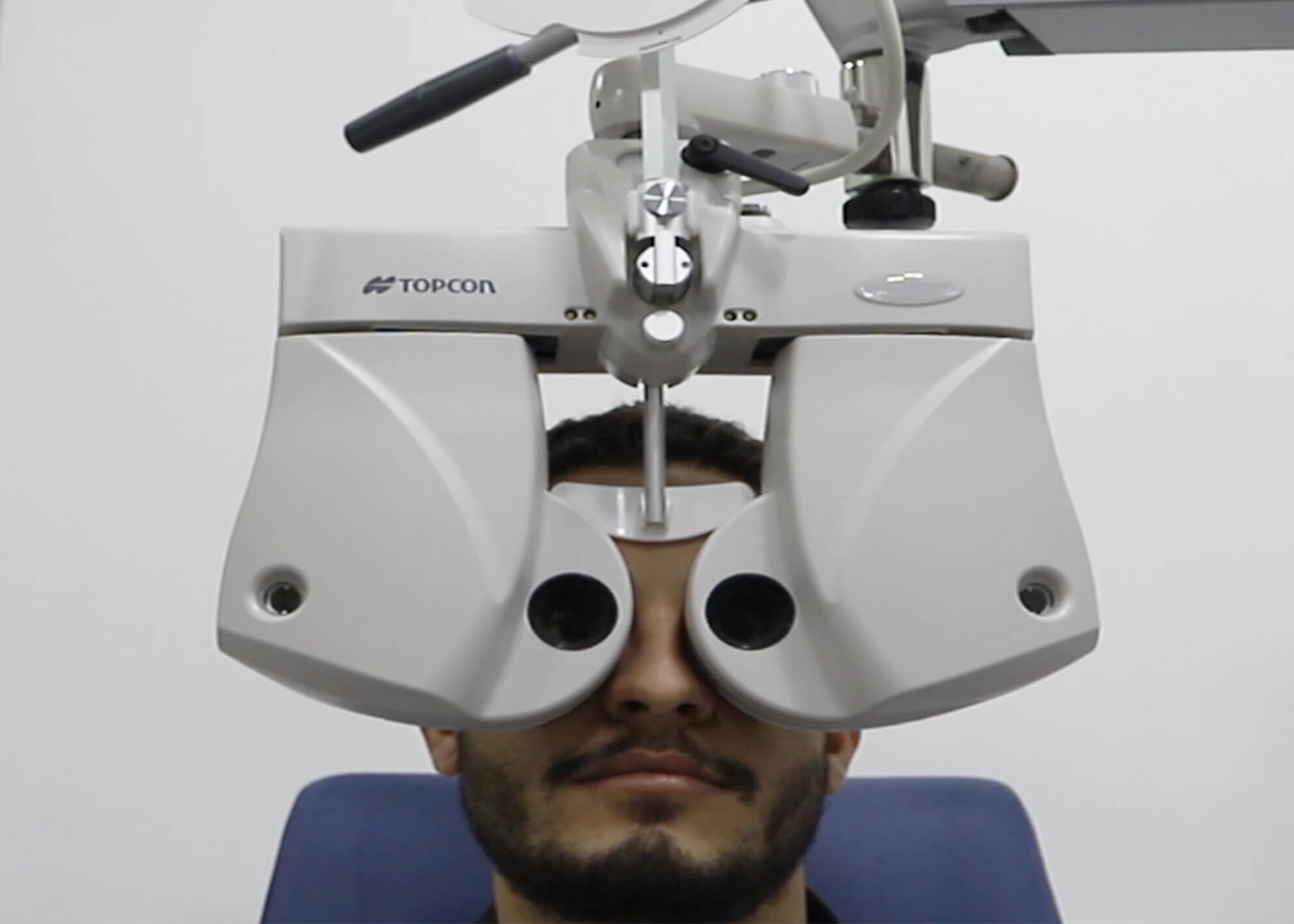Corneal Edema (Corneal Swelling) at Eye Clinic DRHC Dubai
What is a Corneal Edema?
Corneal edema is the swelling of the cornea, the clear, dome-shaped surface that covers the front of the eye. This condition occurs when excess fluid accumulates in the cornea, causing it to thicken and become cloudy. Corneal edema can lead to vision problems and discomfort, but with timely and proper management, the symptoms can often be controlled effectively.
Causes of Corneal Edema
Corneal edema can be caused by a variety of factors, including:
- Eye Surgery: Procedures like cataract surgery, especially if there are complications, can lead to corneal swelling.
- Contact Lenses: Prolonged use, improper fitting, or poor hygiene related to contact lenses can reduce oxygen supply to the cornea, causing edema.
- Eye Infections: Infections such as keratitis (inflammation of the cornea) can cause swelling.
- Eye Trauma: Physical injuries to the eye can damage the corneal cells and result in edema.
- Glaucoma: Elevated intraocular pressure can affect the cornea and lead to swelling.
- Fuchs' Endothelial Dystrophy: A genetic disorder where the cells responsible for pumping fluid out of the cornea deteriorate, leading to fluid buildup.
- Chemical Exposure: Exposure to harmful chemicals can damage the corneal cells, resulting in edema.
- Medications: Certain medications, such as eye drops containing preservatives, can cause or exacerbate corneal swelling.
- Corneal Transplant Rejection: In some cases, the body may reject a transplanted cornea, leading to edema.
Symptoms of Corneal Edema
The symptoms of corneal edema can vary, but common signs include:
- Blurred or Distorted Vision: Vision may become cloudy, hazy, or blurry.
- Halos Around Lights: Patients often see halos or rings around lights, particularly at night.
- Eye Discomfort: The eye may feel irritated, and there may be a sensation of something being in the eye.
- Sensitivity to Light: Bright lights may cause discomfort or pain, a condition known as photophobia.
- Swelling of the Cornea: Visible swelling or cloudiness of the cornea can sometimes be observed.
- Reduced Visual Acuity: Difficulty in seeing fine details or reading.
Diagnosis
At DRHC Dubai, our ophthalmologists use state-of-the-art diagnostic tools to accurately diagnose corneal edema:
- Slit Lamp Examination: A detailed examination of the eye using a specialized microscope to inspect the cornea.
- Corneal Topography: A non-invasive imaging technique that maps the surface curvature of the cornea to detect swelling.
- Pachymetry: A test that measures the thickness of the cornea to assess the extent of the swelling.
- Specular Microscopy: This test examines the endothelial cell layer of the cornea to check for cell loss or damage.
- Optical Coherence Tomography (OCT): An imaging test that provides detailed cross-sectional images of the cornea.
Management and Treatment Options
The treatment of corneal edema depends on the underlying cause and the severity of the condition. At DRHC Dubai, we offer a comprehensive range of treatment options:
Medical Management
- Hypertonic Saline Drops or Ointments: These help to draw excess fluid out of the cornea.
- Anti-inflammatory Medications: These reduce inflammation and swelling. Non-steroidal anti-inflammatory drugs (NSAIDs) or corticosteroids may be prescribed.
- Muro 128 (Sodium Chloride 5%): A commonly used hypertonic solution for reducing corneal swelling.
- Antibiotic Eye Drops: Used if an infection is the underlying cause of the edema.
- Glaucoma Medications: To lower intraocular pressure if glaucoma is contributing to the edema.
Lifestyle and Preventive Measures
- Proper Contact Lens Care: Follow recommended guidelines for cleaning, wearing, and replacing contact lenses.
- Avoiding Rubbing Your Eyes: This can exacerbate the condition or cause additional injury.
- Maintain Eye Hydration: Use lubricating eye drops if you have dry eyes to keep the cornea moist.
- Protective Eyewear: Wear protective glasses during activities that could expose your eyes to dust, chemicals, or potential trauma.
Surgical Interventions
In severe cases where medical management is not sufficient, surgical options may be considered:
- Descemet’s Stripping Endothelial Keratoplasty (DSEK): A partial-thickness corneal transplant that replaces only the damaged endothelial layer.
- Descemet's Membrane Endothelial Keratoplasty (DMEK): A more advanced and less invasive version of DSEK, involving the transplantation of only the Descemet’s membrane and endothelium.
- Penetrating Keratoplasty (PK): A full-thickness corneal transplant, typically reserved for severe cases where other treatments have failed.
Why Choose DRHC Dubai?
At DRHC Dubai, we are committed to providing exceptional eye care services with a focus on patient comfort and well-being. Our experienced Slit Lamp Examination and optometrists use the latest technology to diagnose and treat corneal edema effectively. We prioritize personalized care tailored to each patient’s unique needs.
.png?width=281&height=59&name=bookanappointment%20(1).png)
At Dr. Rami Hamed Center, our Ophthalmology department is dedicated to safeguarding your vision health through expert eye care Professionals, Renowned as one of the best eye care clinics in Dubai our Ophthalmology Specialists provide services for Cataract and Retina treatment with Laser and Refractive surgeries.




.png?width=281&height=59&name=bookanappointment%20(1).png)






